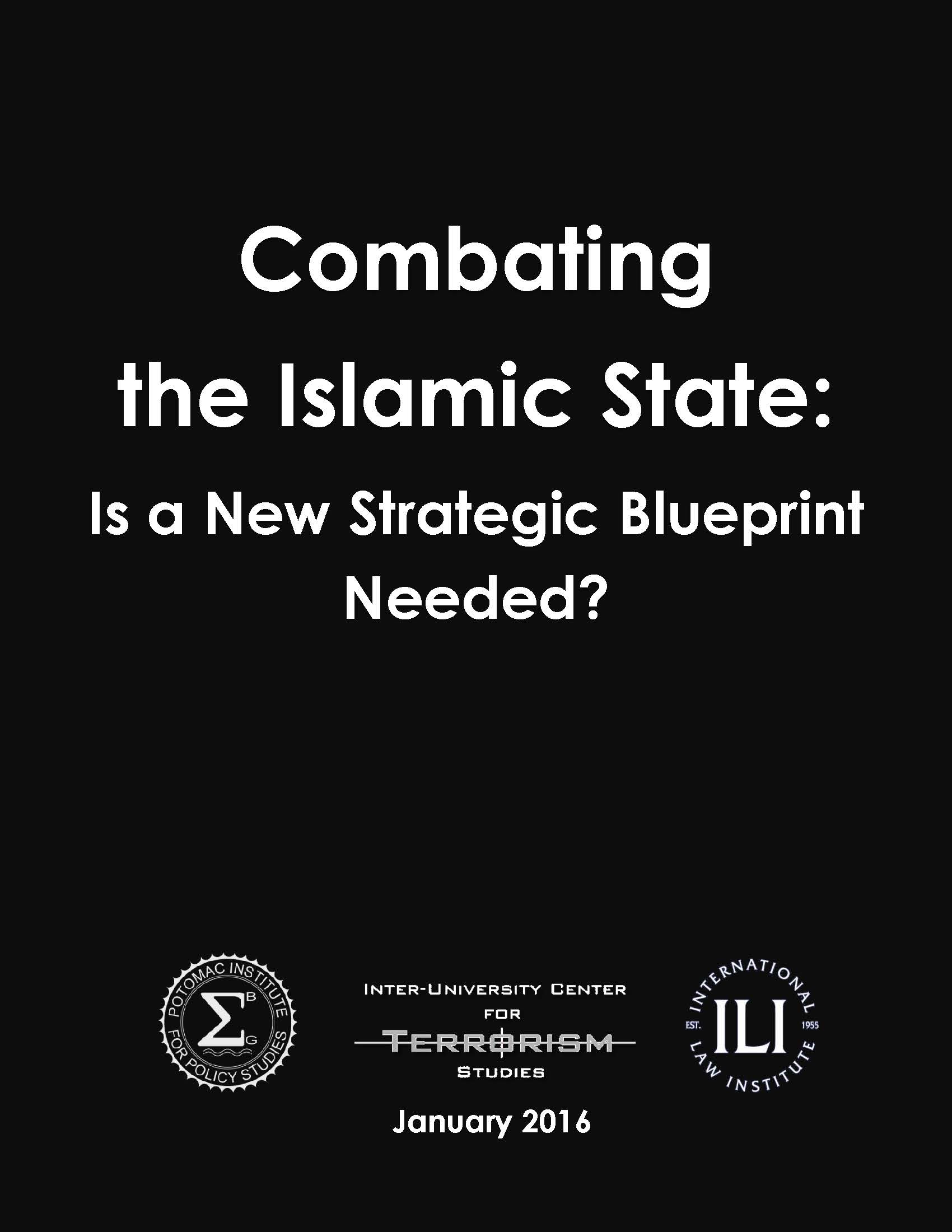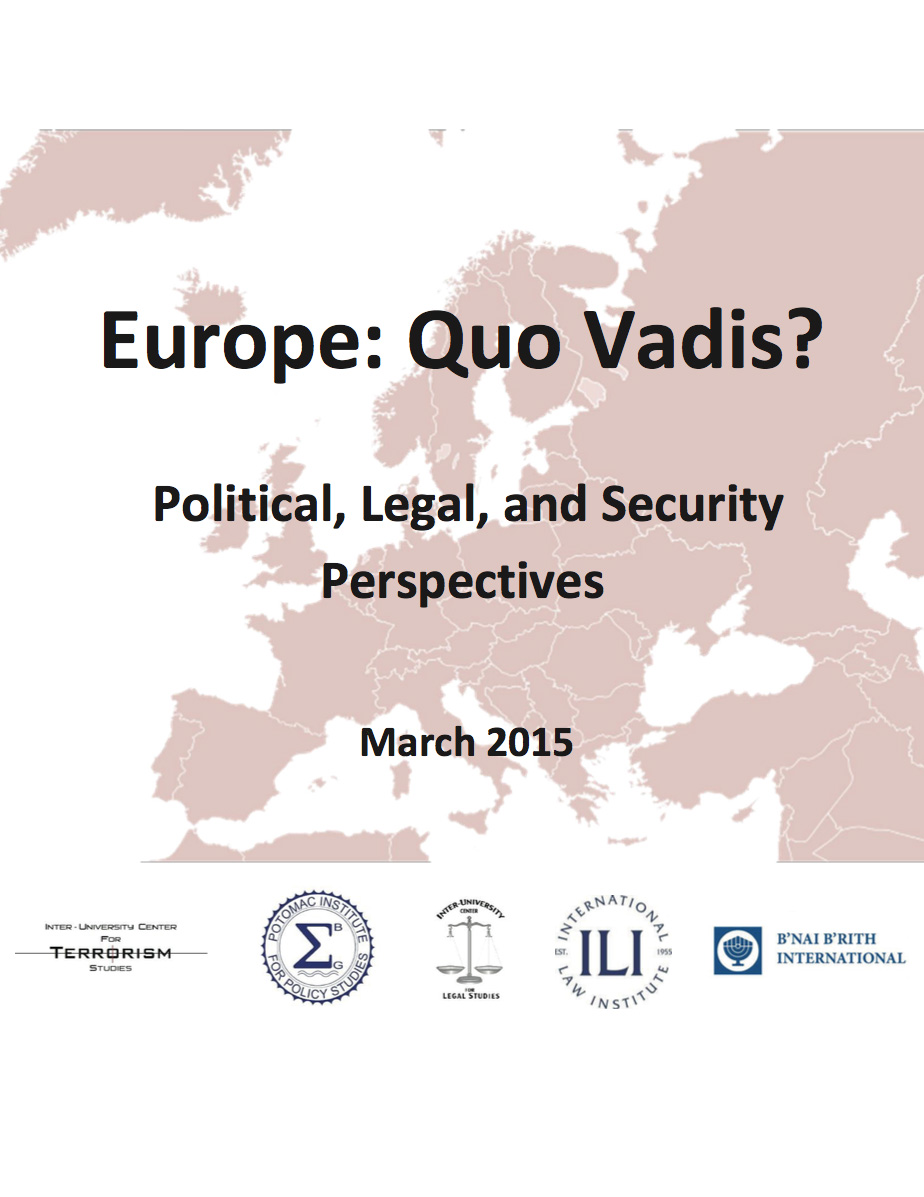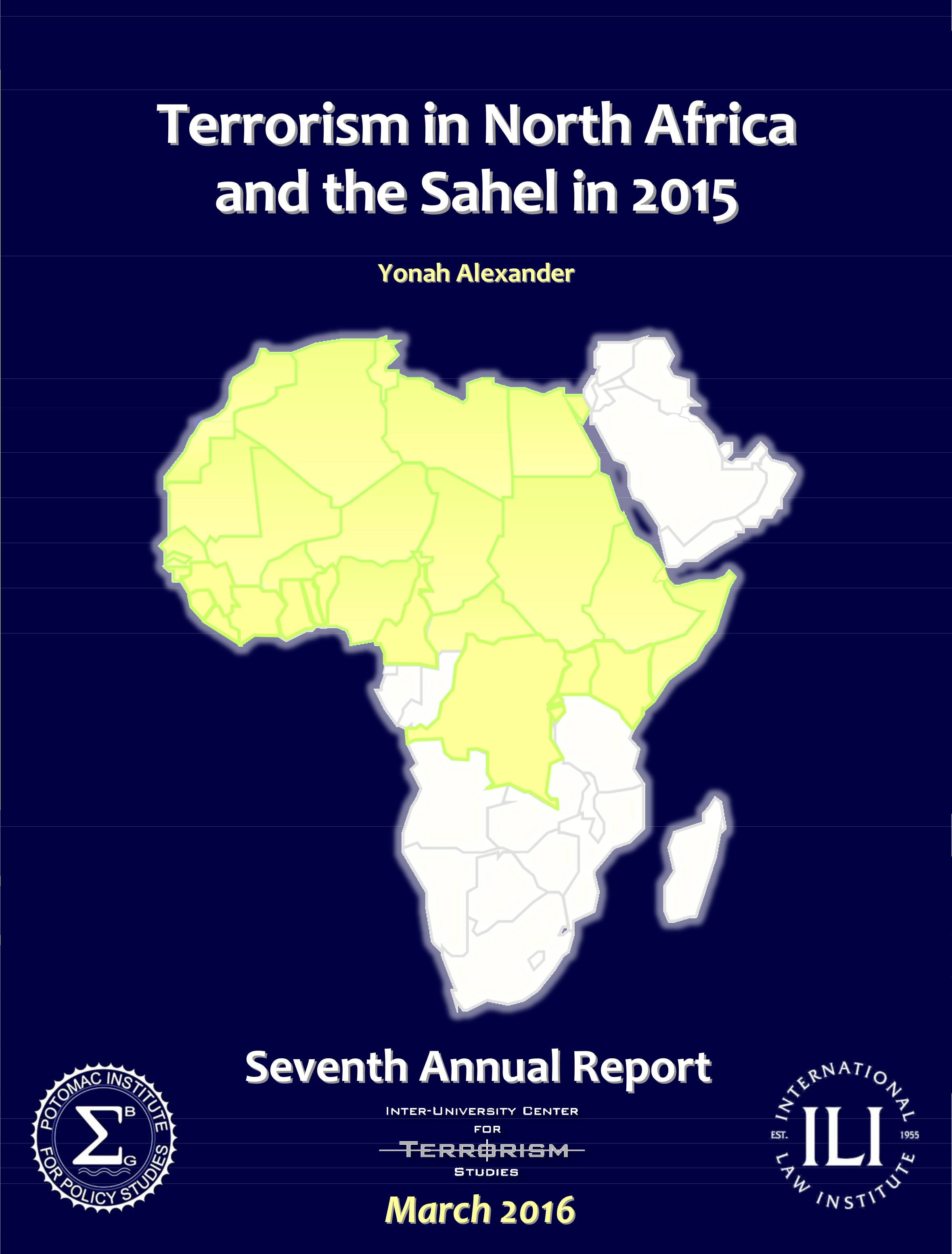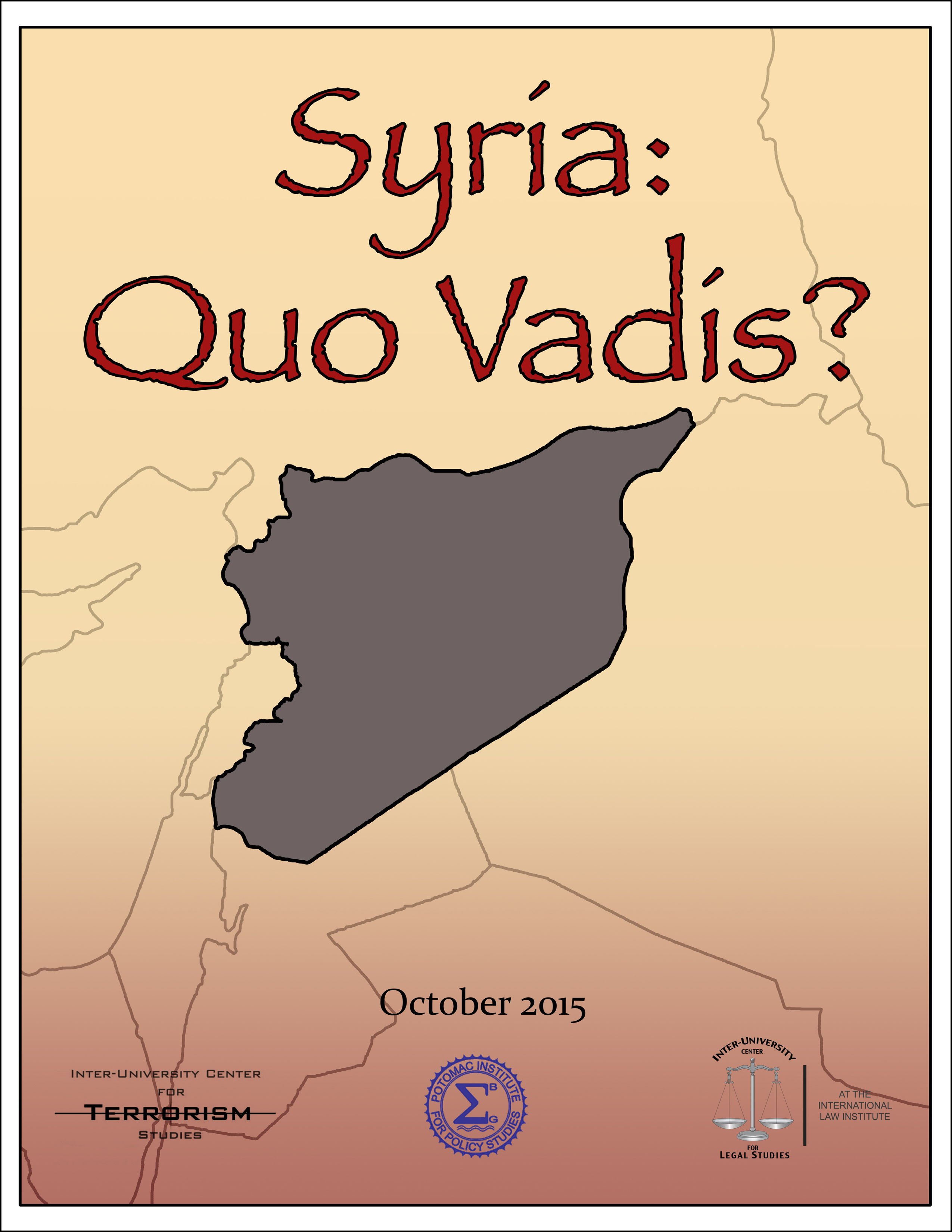Publications
On March 30, 2016, the Inter-University Center for Terrorism Studies (IUCTS) published its seventh annual report, “Terrorism in North Africa and the Sahel in 2015,” authored by Prof. Yonah Alexander, Director-IUCTS. The report finds the region & global community facing the most serious security challenges since 9/11, from natural and man-made threats ranging from Ebola to extremism. The rise of the co-called “Islamic State” (Daesh) and the resilience of al-Qa’ida and their affiliates in Africa in 2015 have resulted in much greater instability on the continent with a costly strategic impact inter-regionally. The study recommends the U.S. & allies engage more effectively to slow a security crisis that is erupting across Africa’s “arc of instability.” Other recommendations include:
- “Strengthen U.S. and NATO intelligence assets by broadening cooperation through AFRICOM, NATO’s Partnership for Peace, and other modalities that supply and support training, equipment, and monitoring of resources throughout the region”;
- “Continue to expand U.S. counterterrorism technical assistance and training to internal security personnel”;
- “Work to settle intra-regional conflicts that provide openings for extremists to exploit and impede security and economic cooperation — including the Western Sahara dispute and the problem of refugees in the Polisario-run camps in Algeria;
- “Recognize the importance of and provide quiet encouragement to Muslim leaders in promoting the practice of a moderate Islam, as well as counter-radicalization programs that limit the appeal of extremist recruiters”;
- And “Promote regional trade and investment by expanding the US-Morocco Free Trade Agreement to include goods and products from North, West, and Central Africa."
Download the full pdf here.
As NATO, the North Atlantic Treaty Organization, celebrates its 67th anniversary, it still represents the most significant defensive and offensive alliance in the past two centuries. And yet, in early 2016 its twenty-eight nation-state members are still facing a broad range of old and new horizontal and vertical challenges. These include piracy, terrorism, regional conflicts, humanitarian crises, high-seas piracy, proliferation of weapons of mass destruction (WMDs), and cyber threats. Indeed, the status quo and combined deterrence and containment of the forty-years’ Cold War have been replaced by the realities of the changed world from Europe to the Middle East and beyond. Suffice it to mention the ongoing Russian military operations in Ukraine and now in Syria, the escalation of radicalization and violence perpetuated by an array of state and sub-state actors such as al-Qa’ida affiliates, and the ominous emergence of the newly declared caliphate by the “Islamic State” (also known as ISIS, ISIL, and Daesh).
The current report on “NATO: Confronting Regional and Global Challenges” is a modest academic effort to provide a context for the Alliance’s political and military missions in the coming months and years.
Download the full pdf here.
Contemporary Syria (formally the Syrian Arab Republic) is a United Nations member state under the regime of President Bashar Assad. Tragically, it ranks as one of the most brutal dictatorships in the history of mankind. As the country’s raging war grinds through its fifth year, a total of an estimated 300,000 citizens, including women, children, and elderly, have been killed and thousands more wounded. The gravity of the humanitarian crisis is demonstrated by the four million Syrian refugees who fled the unbearable costs of the unending battles, into Lebanon, Jordan, Turkey, and Iraq and, with hundreds of thousands even journeying from the Middle East towards safety in Europe and elsewhere.
Download full PDF here.
 Introduction excerpt:
Introduction excerpt:
Professor Yonah Alexander
Director, Inter-University Center for Terrorism Studies
Download the full pdf here.
Since time immemorial war has been a permanent fixture in the struggle of power within and among nations. It is not surprising therefore that Sun Tzu, China’s foremost strategist, observed over 2500 years ago that “war is a matter of vital importance to the state, the province of life or death, the road to survival or ruin” (400-320 BC, The Art of War, II). Similarly, in modern times, Winston Churchill, Britain’s great former Prime Minister, famously noted that “in mortal war, anger must be subordinated in defeating the main immediate enemy” (The Gathering Storm, 1948).
Despite this stark reality, a related political concept, “terrorism” (constituting fear and psychological and physical violence as an instrument of tactical and
strategic power employed by individuals, groups, and sovereign entities seeking to achieve single-issue or broader policy objectives at home or abroad) has
consistently evaded universal agreement on the meaning of the term. Specifically, there is no consensus as to who are the “terrorists,” what are the
root causes of the phenomenon, and how societies should combat national, regional, and international threats.
Read more: Combating the Islamic State: Is a New Strategic Blueprint Needed?
 Foreword
Foreword
Professor Don Wallace, Jr.
Chairman, International Law Institute
I am happy to have been asked by Professor Alexander to prepare this foreword to “Europe: Quo Vadis? (Political, Legal, and Security Perspectives).” Yonah Alexander’s Introduction to this volume recites the many dimensions of our subject. Dimensions in which he, organizations in which he has been involved or with which he has cooperated, and programs that they have conducted, have touched upon and opened up.
To be sure, Professor Alexander’s central concern, the permanent need to be cognizant of, knowledgeable about and determined to resist the insidious threats of terrorism, is always front and center in his work. But “Europe: Quo Vadis?” encompasses much more, as does the world in which Europe finds itself today. The Eurozone, and the EU itself, is challenged by the financial and economic straits of some of it members. Its expenditures on defense and especially as these relate to NATO, and issues such as some of Turkey’s vagaries, are causes for concern. The antics and behavior of Vladimir Putin’s Russia, towards Ukraine and neighboring countries may be the greatest threat to Europe, and thus to us. How Europe relates itself to the rise of Asia, especially its economic rise, will be of paramount concern. But Europe’s economy and society remain powerfully attractive: to Africans risking their lives to find livelihood, and to terrorists seeking to upend its values, as in the cowardly assaults in Paris on Charlie Hebdo, and a Jewish supermarket on that day. Extremists of various ilks challenge mainstream political parties. And one of Europe’s most lethal bacilli, anti-semitism, as Yonah points out in his Introduction, has returned, in several strains, traditional as in Greece and Hungary, and possibly in an equally virulent form in France and elsewhere.



